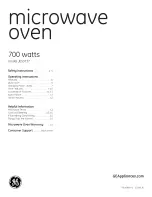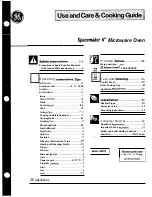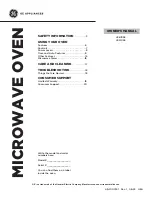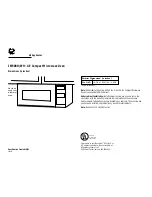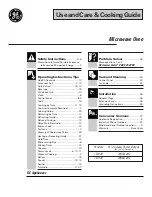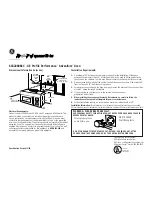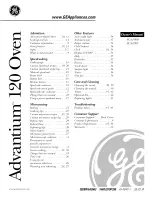
3
IMPORTANT SAFEGUARDS contd.
15
Always test the temperature of cooked food especially if you are heating or
cooking foods or liquids for babies. Foods and liquids should be allowed to
stand for a few minutes and stirred to distribute heat evenly. Remember to stir
with a non-metal utensil to prevent the food or liquid suddenly bubbling over
the container.
16
There are certain foods such as jam, mincemeat and Christmas pudding, which
heat up very quickly, and care should be taken to check the temperature
before consuming. When heating or cooking certain foods with a high fat or
sugar content do not use plastic containers.
17
If using a thermometer ensure it is a model specifically for use in microwave
ovens.
18
DO NOT
attempt to deep fry food in the microwave.
19
Please remember when microwaving liquids that although the container is not
hot the liquid inside is, and will release steam or spit as in conventional
cooking. Microwave heating of beverages can result in delayed eruptive
boiling, therefore care shall be taken when handling the container.
20
WARNING:
If the door or door seals are damaged, the oven must not be
operated until it has been repaired by a competent person.
21
WARNING:
It is hazardous for anyone other than a competent person to carry
out any service or repair operation which involves the removal of a cover which
gives protection against exposure to microwave energy.
Before Plugging in
●
Before switching on make sure that the voltage of your electricity supply is the same
as that indicated on the rating plate.
●
This appliance must be earthed.
Note: This appliance complies with European Economic Community Radio Interference
Directive 89/336/EEC.
Radio Interference
Operation of the microwave oven can cause interference to your radio, TV or similar
equipment. If interference occurs, it can be reduced by taking the following measures:
a) Clean the oven door and seals.
b) Move the radio or television antenna.
c) Relocate the oven away from the receiver.
Before using for the first time
1 Remove all labels and any packaging from inside the oven.
2 Check the oven for signs of damage, such as misaligned or damaged door, dents in
the interior cavity or damaged seals. Do not use the oven if damaged.
3 Do not place anything on top of the oven.
4 To ensure adequate ventilation keep at least 5cm clear on each side of the oven,
10cm at the back and 20cm above the oven.
5 Fit the roller support and glass tray.



















